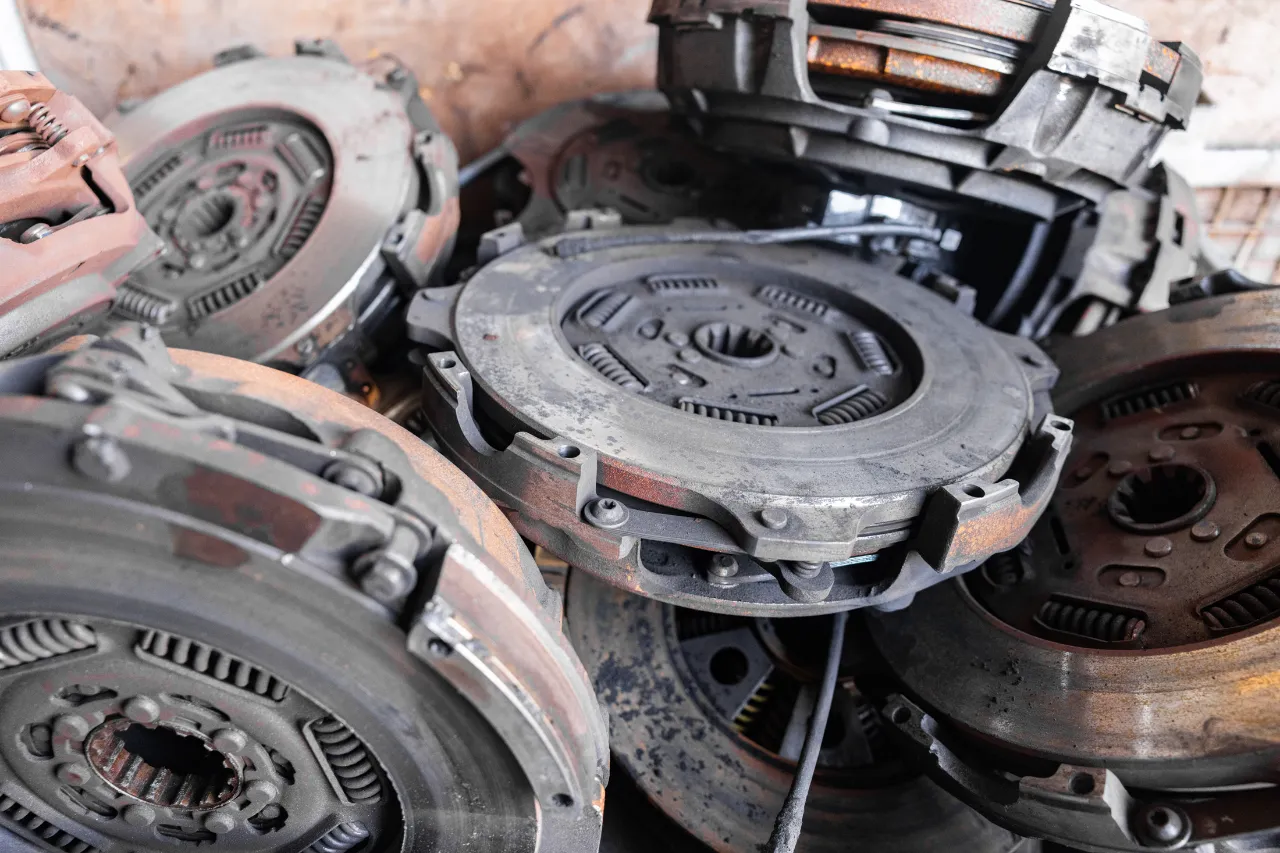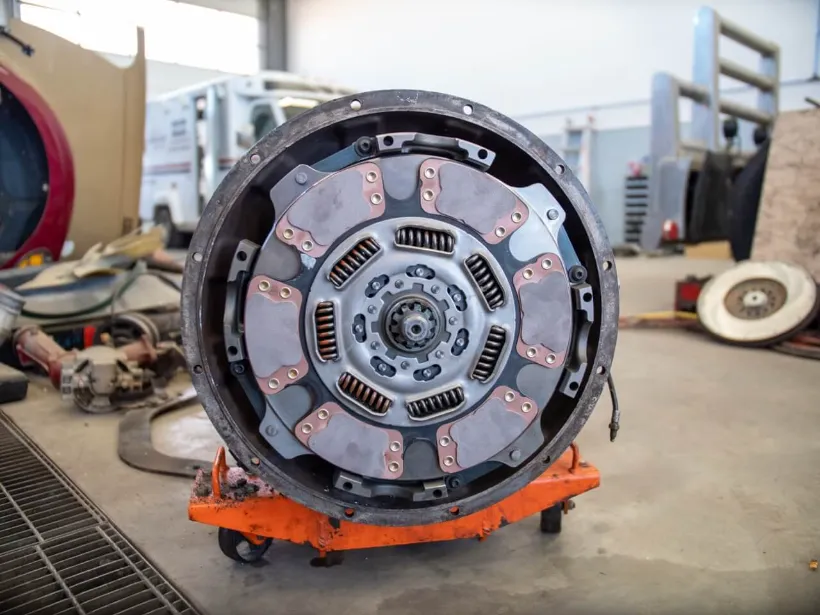What Causes Clutch Failure in Diesel Trucks — And Why It Can’t Wait
Grinding gears or losing power? Your diesel truck’s clutch could be failing. From worn discs to oil leaks, small issues can lead to costly downtime, safety risks, and lost revenue. Learn the causes, warning signs, and steps to keep your clutch—and business—running strong.

When you're grinding gears or losing pull power on steep grades, that’s your clutch. In diesel trucks, the clutch plays a critical role in transferring power from the engine to the transmission. When it fails, your truck doesn't just slow down—it could come to a full, revenue-sapping stop.
Let’s break down what causes clutch failure, why it spells big trouble, and why you can’t afford to sit on it.
Understanding the Role of the Clutch
Your diesel truck’s clutch is a complex assembly that includes the pressure plate, clutch disc, release bearing, and flywheel. In manual transmissions, it connects and disconnects the engine from the drivetrain, allowing for smooth gear shifts and power transfer.
Every time you take off from a stop, shift gears under load or feather it on a steep climb, the clutch absorbs that strain. Now multiply that by thousands of shifts over thousands of miles—that’s heavy-duty work.
Common Causes of Clutch Failure in Diesel Trucks
- Riding the Clutch
You may not realize it, but resting your foot on the clutch pedal—even lightly—keeps it partially engaged. This causes excessive heat and wear on the clutch disc and pressure plate, leading to glazing or burning.
- Overloaded Hauls
Pushing beyond your GVWR (gross vehicle weight rating) doesn’t just tax your engine and brakes—it puts massive stress on the clutch. The more torque it has to transmit, the quicker it wears out.
- Oil Contamination
A leaking rear main seal or transmission input shaft seal can cause oil to seep into the clutch disc, leading to slippage and erratic engagement. You’ll know it when you smell burning or notice jerky takeoffs.
- Faulty Clutch Linkage or Hydraulics
Worn clutch cables, stretched linkage, or low hydraulic fluid can prevent the clutch from fully disengaging. This leads to grinding gears and premature wear of both the clutch and transmission synchros.
- Driver Technique
Bad habits—such as holding the clutch at red lights, slipping it on hills, or not fully depressing it during shifts—compound wear and tear quickly. In fleet operations, inconsistent driver behavior is a major clutch killer.
- Heat Buildup from Stop-and-Go Driving
Urban routes and hilly terrain in Fontana’s hot climate can cause clutches to overheat, especially if the cooling system or transmission cooler isn’t functioning properly.
Why You Can’t Delay Clutch Repairs
Ignoring a worn clutch can result in devastating consequences, including:
Increased Repair Costs: Damage spreads. A failing clutch can eat into the flywheel, destroy the release bearing, or stress the transmission input shaft.
Lost Productivity: Downtime means no deliveries, no hauls, and missed deadlines. This translates to missed revenue and potentially irreparable damage to your reputation.
Safety Hazards: A slipping clutch reduces your ability to control speed and maneuver under load—especially dangerous on grades or in traffic.
Fuel Inefficiency: Power loss from slippage means your engine works harder and burns more diesel to move the same load. And with diesel prices the way they are, you can’t afford to make this mistake.
Key Warning Signs of Clutch Failure
Don’t let your clutch sneak up on you. Look out for:
- Soft or spongy clutch pedal
- Difficulty shifting gears, especially into first or reverse
- Burning smell during operation
- Noticeable decrease in pulling power
- High RPMs without a corresponding increase in speed
If you’re noticing any of these, your diesel clutch may be on its way out.
Preventing Future Clutch Issues
Avoiding clutch failure starts with routine maintenance and smart driving practices:
- Schedule regular inspections with professional heavy-duty clutch mechanics
- Replace worn components before they lead to full failure
- Educate drivers on proper shifting techniques
- Avoid overloading and monitor load weights consistently
- Ensure transmission fluid is at the right level and quality
Conclusion
A clutch may seem like just another part, but for your diesel truck, it’s mission-critical. Whether you’re running a fleet or managing a single rig, the cost of ignoring clutch problems is steep—from sky-high repairs to lost hours on the road. Keep your clutch in check, and you’ll keep your truck—and your business—moving forward
More Articles
Contact OnSite Truck & Equipment Repair
Need roadside assistance, have questions, or want to schedule your truck or trailer in for service in Fontana, CA? Get in touch with OnSite Truck & Equipment Repair, we're open Monday through Friday from 7:00am to 4:00pm.

.webp)
%20(2).webp)
